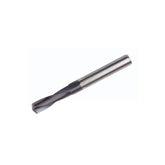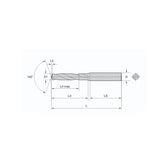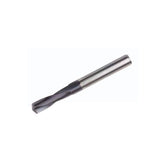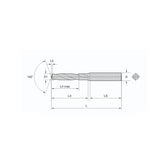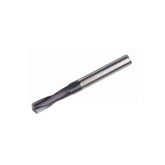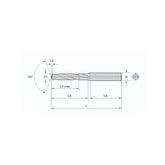Case Study | Hardness Evaluation in Manufacturing - Mitutoyo
Hardness Testing: From Everyday Objects to Industrial Applications
In daily life, we not only need to evaluate the appearance and dimensions of products but also analyze physical properties such as hardness. As an important indicator for assessing material hardness, hardness measurement is ubiquitous in our lives.
As common knowledge, even without testing, we can tell that tofu is softer than wood, and an iron block is harder than a sponge. But if asked to rank the surface hardness of walnuts, macadamia nuts, watermelon seeds, and sunflower seeds without testing, would you find it difficult?
We used a Vickers hardness tester HV-110 series to test the surfaces of these nuts.




Does the above ranking match your expectations? According to the common standard for material hardness - Vickers hardness (HV), walnuts are the hardest, and sunflower seeds are the softest.
Hardness Evaluation in Manufacturing
For products completed on the production line, judging which is harder or softer based on common knowledge is not easy. Different types of products require different hardness testing methods and instruments due to their varying materials and structures.
Here, we will introduce several hardness testing solutions suitable for different situations, aiming to solve your testing challenges and help you quickly select the appropriate hardness tester.
Large Structural Components (Crankshafts, Cylinders, etc.)



In the automotive parts field, large metal structural components such as crankshafts, cylinder blocks, and cylinder heads need to work under stress, so these products must have sufficient strength and stiffness to ensure their service life.
However, these metal structural components are often large in size and weight, usually requiring cutting of the product before testing. At the same time, they require hardness testers with high load-bearing capacity.

Mitutoyo's CNC-type Rockwell hardness tester HR-600 series can better address this challenge.
HR-610A/620A/620B Specifications:
- Maximum worktable load capacity: 100kg
- Suitable for large workpieces within height 250mm and depth 220mm
- No need to cut the workpiece for hardness testing
- Equipped with electric X·Y worktable for automated testing
- Significantly improves work efficiency
Inner Walls (Bearings, etc.)

Inner walls are commonly found in bearing products. We not only need to test the hardness of the bearing outer ring but also evaluate the hardness of the inner wall. However, bearing inner diameters are often small, and during testing, the indenter may interfere with the product. Therefore, attention should be paid to the minimum diameter applicable to the hardness tester when selecting.

The Rockwell hardness tester HR-530 series can perform tests with a minimum standard diameter of 34mm. When using a separately purchased 5mm diamond indenter, the applicable inner diameter can be further reduced to 22mm, widely suitable for hardness evaluation of bearing products.
Additional Features:
- Can perform Rockwell hardness tests and superficial Rockwell hardness tests
- Has Brinell hardness test capabilities
- Brinell hardness indentation depth measurement
- Loading sequence for plastic testing
- A new type of hardness tester capable of multi-purpose hardness testing
Small Surfaces, Gaps, and Grooves



We often encounter workpieces with small surfaces, narrow spaces, gaps, grooves, and surface steps in many structures. The indenters of conventional hardness testers have difficulty directly accessing these areas. In such cases, we recommend using portable hardness testers to solve this problem.

The rebound portable Leeb hardness tester HH-411 can perform hardness tests on small sample surfaces and is suitable for evaluating various shapes such as grooves and gear teeth. As a compact portable metal Leeb hardness tester, the HH-411 has good operability and is suitable for various testing fields.
Building Automation for Hardness Testing
Meanwhile, with the introduction of automated production lines, implementing hardness evaluation on production lines is highly anticipated by users. We can build automation systems according to on-site conditions through external control software FORMEio.


HR-620B equipped with an X-axis worktable (optional) builds a system that links with robots to automatically install samples and classify them based on inspection results.
Explore More Mitutoyo Products